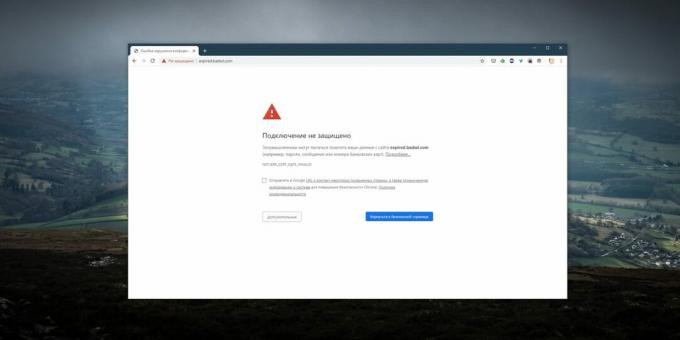10 reasons to stop using antivirus software in 2020
Technologies / / December 30, 2020
1. Browsers are already safe enough
In most cases, viruses enter your computer through your browser when you visit questionable sites. Therefore, antiviruses have so-called Internet screens that check whether the resource you have opened is not dangerous. But all more or less popular browsers themselves are quite protected from adversity.
Chrome, Firefox, and Edge both alert you when you try to open a hacked, phishing, or malicious site. It is better to follow their recommendations and get out of there than to test your defense for strength.
In addition, the same Chrome and Firefox have mechanisms for searching for threats in the files you download and the so-called sandbox.Security / Sandboxthat prevents malicious objects from the Internet from spreading outside the browser.
All browsers are updated periodically to maintain security. So just don't get in the way.
The only thing to do is install an ad blocker extension. And still not worth saving passwords in the browser. Instead, you need to install a password manager like KeePass or 1Password.
Reading now🌄
- Where to find good and legal free pictures
2. Windows 10 itself is pretty secure
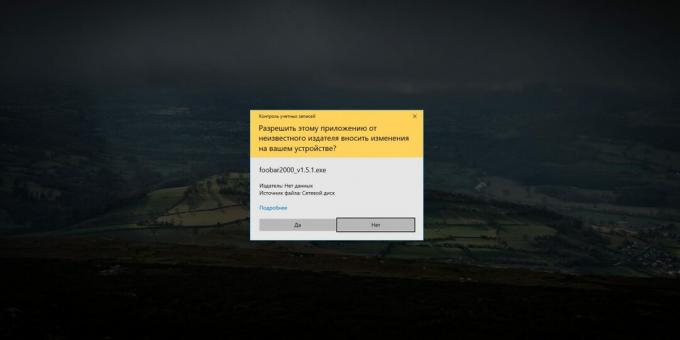
Modern Windows 10 is quite resistant to viruses, and security holes are timely closed with patches. Of course, provided that you have automatic updates enabled. Therefore it is not necessary disconnect it is due to the fact that it supposedly slows down the computer.
In addition, Windows 10 has a UAC (User Account Control) feature designed to ensure that no applications can be installed without your knowledge. At the right time, the system displays a window asking whether to allow this program to make changes, and displays whether the publisher is trustworthy.
The internet is full of guides on how to turn it off, because it's so annoying.
However, keep in mind that only not very intelligent people will follow these tips: Windows 10 knows better how to protect itself. And the best way to keep your computer as secure as possible is to make as few changes as possible to Settings.
3. Windows 10 has its own antivirus
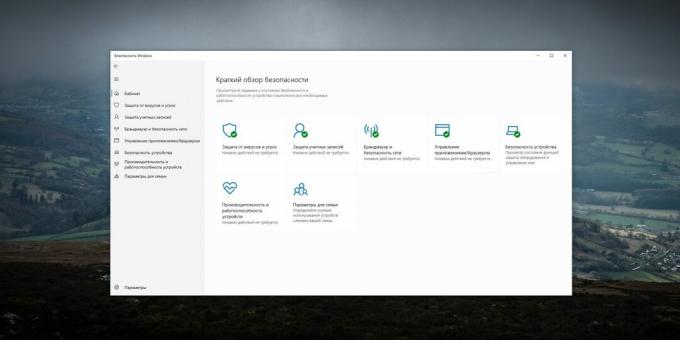
In the days of Windows 7, we looked for “the best free antivirus software” or paid for a subscription. But with the advent of Windows 10, the need for this has disappeared, because it has its own built-in Windows Security antivirus.
It is quite effective [Windows Defender Voted Best Free Antivirus by Independent Lab, HOME ANTIMALWARE PROTECTION JUL - SEP 2019 and does not slow down the system.
The antivirus has a firewall and a filter for unreliable SmartScreen applications. Moreover, the program does not require any additional actions and settings, it just works.
Nevertheless, a huge number of users crave for it disable and install some other antivirus - apparently out of habit. Don't do that. "Windows Security" is enough with the head - there is no need for additional solutions.
4. In Linux and macOS, viruses still need to be looked for
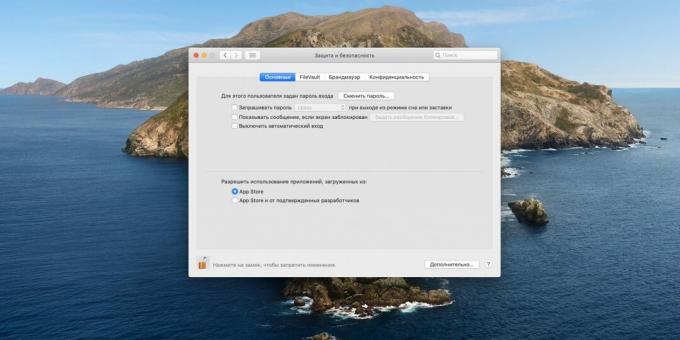
The actions of Windows users who install the antivirus are generally more or less clear. But when the owner of a computer with Linux or macOS downloads a special version of the defender for his system, it no longer lends itself to any logic.
First, these operating systems are much less common than Windows, and their appeal to virus writers is not so high. Second, Linux and macOS are well protected. The first prompts you for confirmation with an administrator password for every action that affects the system, while the second guards you with built-in gatekeeper and XProtect.
Installation of applications in Linux and macOS is performed by default from trusted repositories or the App Store, which also virtually eliminates the threat of infection.
So if you are using Linux or Mac, forget about ESET NOD32 Antivirus for Linux Desktop or Avast Security for Mac. Even on Windows, their need is dubious at best, but here they are completely useless.
5.... as in Android with iOS
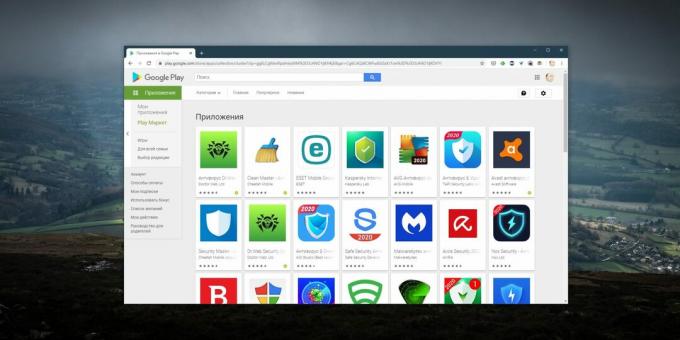
There are regular controversies on the Internet about which antivirus for a smartphone is better and which operating system is more vulnerable to malware. However, the discussions are pointless: you do not need these programs on smartphones either, because Android and iOS are equally well protected.
And almost 40% of applications presented on Google Play under the guise of antivirus, according to testsAndroid Test 2019 - 250 Apps AV ‑ Comparatives are completely useless.
To stay safe, there are three simple rules to follow. First, do not download or install applications from third-party sources other than Google Play and the App Store. Second: do not go to suspicious sites that bombard you with "Update application" and "Speed up system" banners. Third, keep your apps and system up to date. That's all.
6. Antivirus steals your personal data
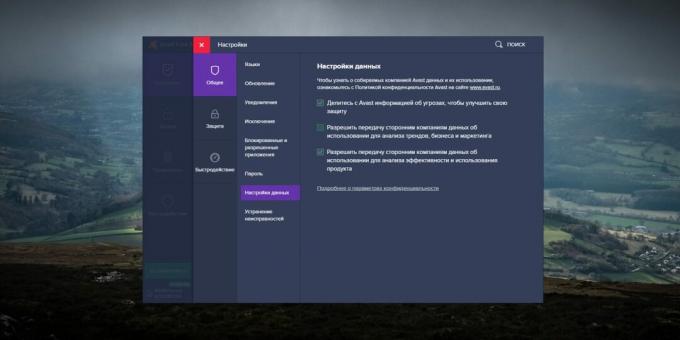
Yes, your antivirus is spying on you. Recently became knownthat Avast and AVG collect your browser history and activity on the Internet and then sell it to marketers interested in serving you more ads.
And if you think that only free products that need to be monetized in some way are wrong, you are wrong.
Kaspersky Internet Security openly admitsProviding data when the program is runningthat can read your social media chats and browser history. And the domestic antivirus has already been caught on surveillanceKaspersky AV injected unique ID that allowed sites to track users, even in incognito mode for users, even when they used the browser in the "Incognito" mode.
7. Antiviruses are spread in a dishonest way
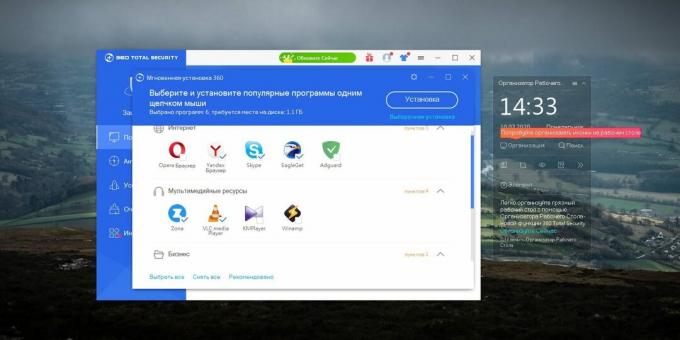
For money, antivirus vendors go for some pretty nasty tricks. When installed, their products change your default search engine and stuff unnecessary extensions into your browser. And then the browser itself is changed to another. They set up their home page and various toolbars from their partners, and sell all sorts of junkware you don't need.
And sometimes the antivirus will download itself if you forgot to uncheck a box in some installer.
Such things are sinnedBeware: Free Antivirus Isn’t Really Free Anymore Comodo, Ad-Aware, Avira, ZoneAlarm, Panda, Avast and AVG. It would seem that antiviruses should help clean your computer of all junk, but instead they install their own. And even Unchecky does not always save.
In addition, the creators of the antivirus will go to great lengths to force you to buy the paid version. The developers of the same Kaspersky, for example, were once caughtKaspersky Antivirus accused of creating fake malware for over 10 years on the fact that they have been creating fake viruses for 10 years to improve statistics.
8. Antiviruses are overloaded with functions and slow down the system
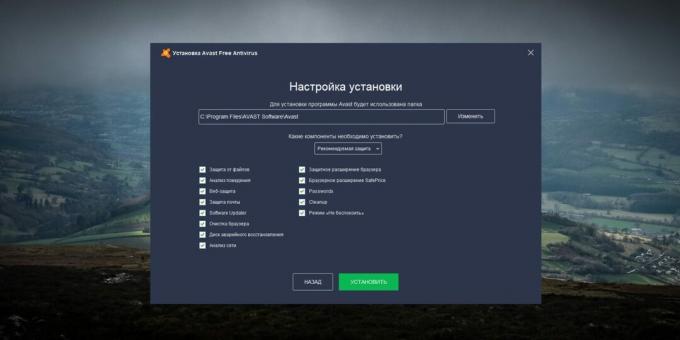
Any antivirus will impose a bunch of unnecessary functions on you. Password manager, browser extension, system cleaner, parental control, VPN, online support, remote control ...
Why is all this in a program that needs one thing: so that it protects against malware on the Internet and does not distract? These endless bells and whistles only contribute to the bloat of the antivirus package to the point of impossibility. And in addition, they also negatively affect performance.
9. Antiviruses are annoying and overwhelmed with ads
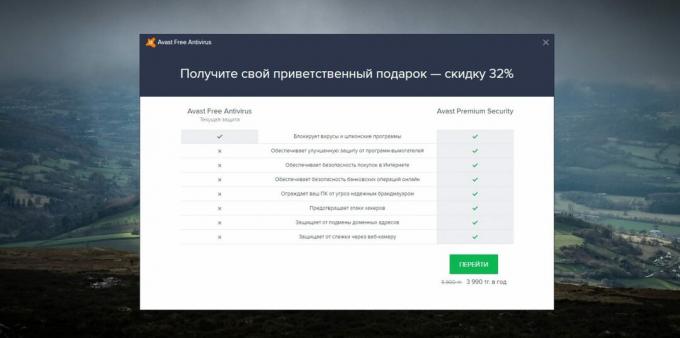
After installation, the antivirus starts constantly bombarding you with pop-up messages. “I found a suspicious file. What should I do? "," I blocked a new application. Unblock? "," I've updated. Hurray! ”,“ Exclusive offer! Upgrade to a paid subscription... ”And that's annoying.
Especially with frequent false positives, when the antivirus persistently blocks an absolutely safe application.
In addition, antiviruses are maddening with ads: "Switch to the Pro version" and "Get additional protection" flash in the main window, and in the settings, and in notifications.
Built-in antivirus "Windows Security" will not distract you. It only periodically reports background scan results, but this feature is easy disable. Invisibility is a great quality for a system tool.
10. Antiviruses don't help
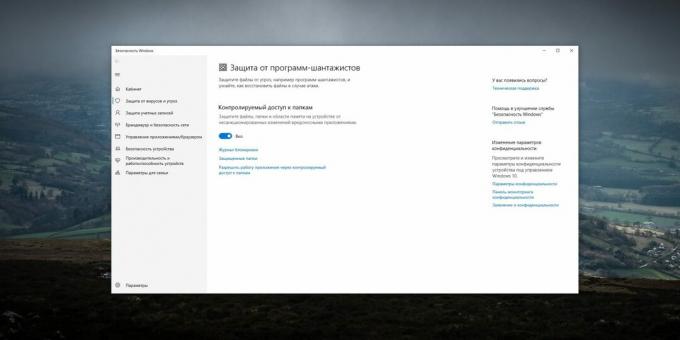
Remember the WannaCry virus epidemic? He encrypted your files and then extorted money, ostensibly to regain access to them. And then there were the invasions of Petya, SyncCrypt, Osiris and Bad Rabbit. And there was no way antiviruses could stop them - simply because they were not familiar with them.
Windows 10 now has function protection against ransomware. It's called Controlled Folder Access. This is a completely reliable tool, but not the only one. What will really save you from all threats is backups.
Set up automatic backups of important files and you won't be afraid of ransomware.
If another ransomware epidemic happens, antivirus fans will sit and wait for Kaspersky to figure it out and release a decryptor. And those who have a backup will recover in 10 minutes and continue working.
Stop spending money on subscriptions or downloading free packages: antiviruses are absolutely useless, and for inexperienced users they are completely harmful. Keep your system and browser up to date, use an ad blocker, don't visit suspicious sites, create backups, use strong passwords and you'll be fine.
Read also🧐
- How to check a computer or a separate file for viruses online
- How to protect yourself from miner viruses
- How to identify and remove viruses that interfere with Chrome

